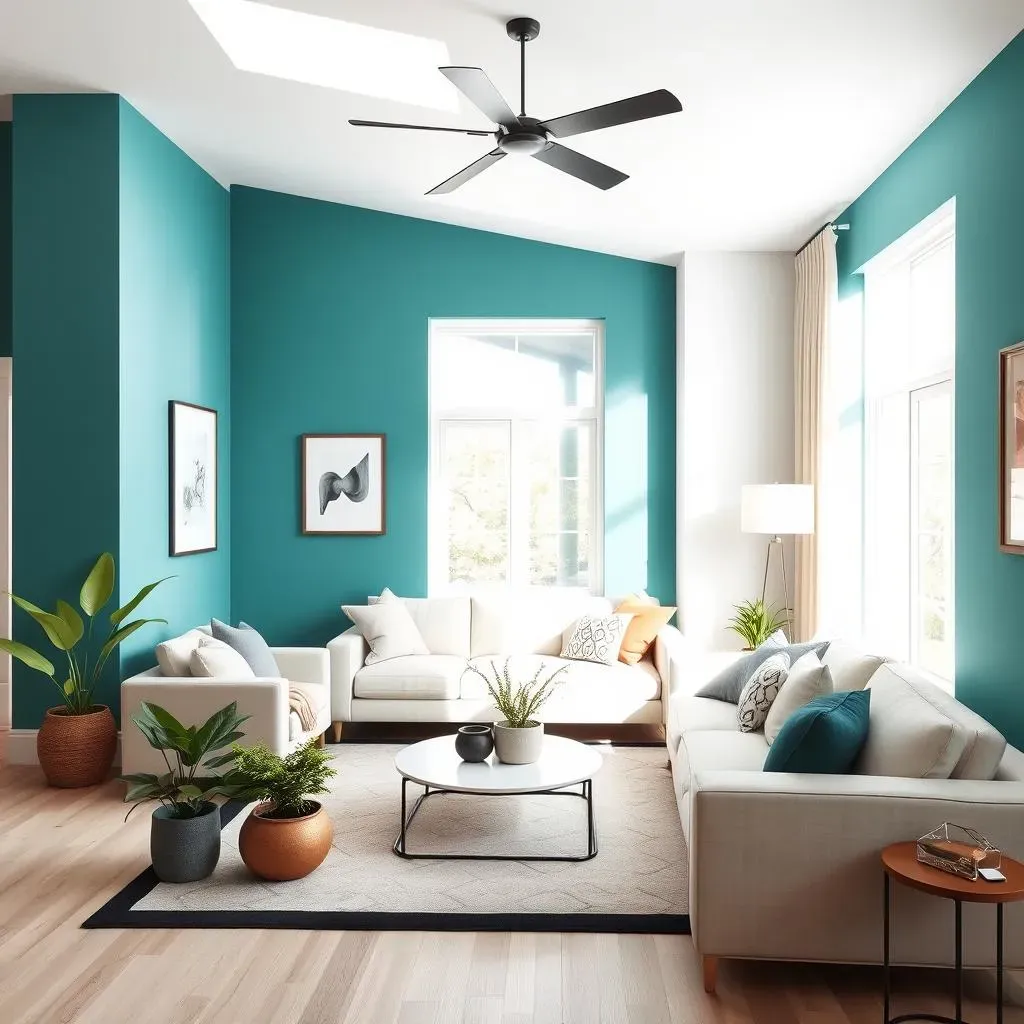Table of Contents
Want to inject some personality into your living space? A strategically placed accent wall can work wonders, transforming a blah room into a vibrant haven. Forget expensive renovations; a fresh coat of paint in a carefully chosen hue can be surprisingly impactful. This article dives into the world of living room accent wall color ideas, offering inspiration and practical tips to guide your next decorating adventure.
Best Accent Wall Colors: Popular Choices for Your Living Room
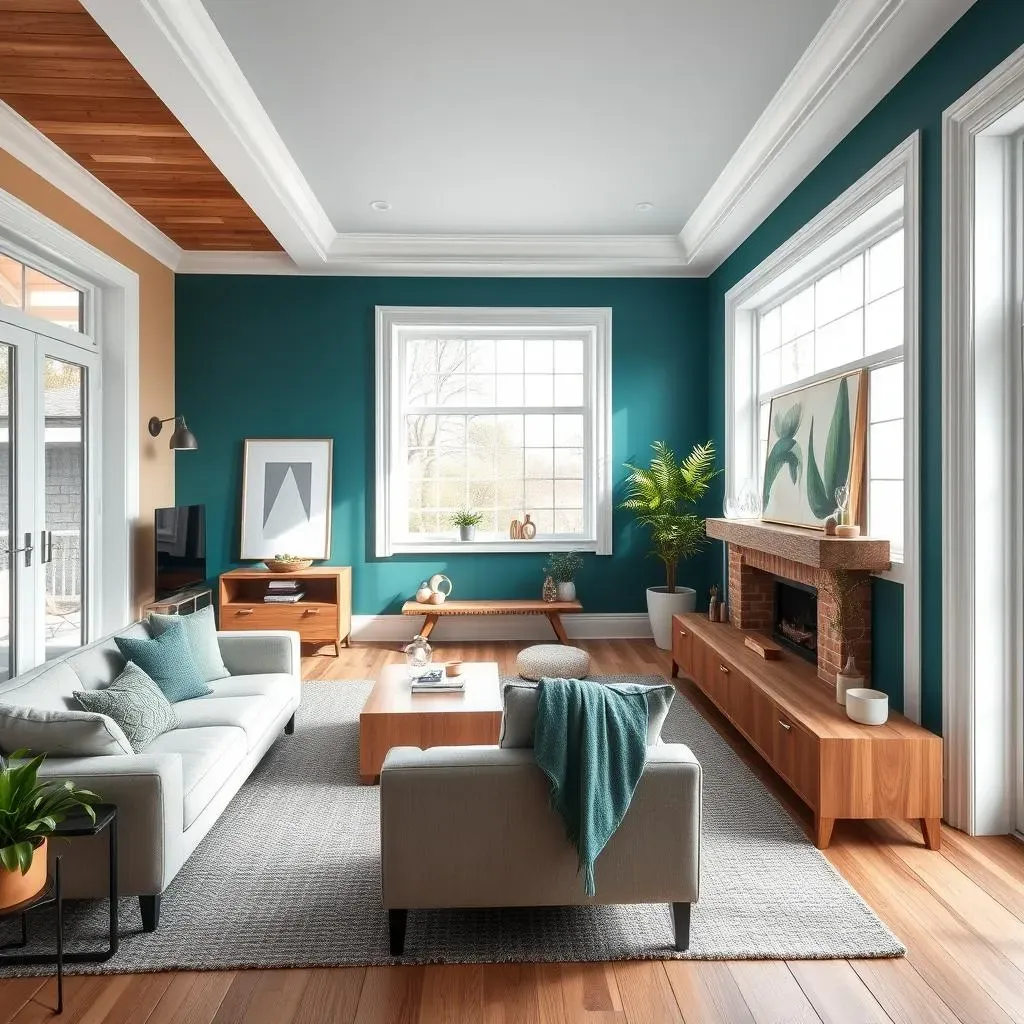
Best Accent Wall Colors: Popular Choices for Your Living Room
The Power of Neutrals
Let's kick things off with neutrals. I know, I know, neutrals might sound boring, but trust me, they're anything but when used right. Think sophisticated grays, warm beiges, or even a creamy off-white. These colors provide a fantastic backdrop for your furniture and accessories, allowing you to switch up your decor without having to repaint the entire room. Plus, a neutral accent wall can actually make a small living room feel larger and more open. It is like magic, but with paint.
A cool gray can create a calming and modern vibe, while a warmer beige adds a touch of coziness. Consider the amount of natural light your living room gets when choosing your neutral. A darker gray might work well in a bright, sunny room, while a lighter off-white might be better suited for a space with less natural light.
Bold and Beautiful: Making a Statement
Now, if you're feeling a little more daring, let's talk about bold colors. A vibrant teal, a deep navy, or even a fiery red can instantly transform your living room into a showstopper. The key here is to use bold colors strategically. A little goes a long way, so it's best to reserve these hues for a single accent wall. Think about the existing colors in your living room and choose a bold color that complements them. For example, if you have a lot of warm wood tones, a cool teal or navy can create a striking contrast.
Don't be afraid to experiment with different shades and textures. A matte finish can create a sophisticated look, while a glossy finish can add a touch of glamour. You could even try a textured paint to add some depth and dimension to your accent wall. Remember, it's your living room, so have fun with it!
Color | Vibe | Pairs Well With |
|---|---|---|
Teal | Bold, Refreshing | Warm Wood Tones, White |
Navy | Sophisticated, Calming | Gray, Metallics |
Red | Energetic, Passionate | Black, White |
Earthy Tones: Bringing the Outdoors In
If you're looking to create a more natural and organic feel in your living room, earthy tones are the way to go. Think mossy greens, warm browns, and rusty oranges. These colors can create a sense of calm and tranquility, making your living room feel like a peaceful oasis. Earthy tones work especially well in living rooms with lots of natural light and plants. They complement natural materials like wood, stone, and wicker perfectly.
Consider using different shades of the same color to create a subtle and sophisticated look. For example, you could use a light mossy green on the accent wall and a darker olive green on the trim. You could also incorporate natural textures like wood paneling or stone accents to enhance the earthy vibe.
Pro tip:
- Test paint colors before committing.
- Consider the existing decor.
- Don't be afraid to experiment!
20 Accent Walls for Every Room: Inspiration for Your Home
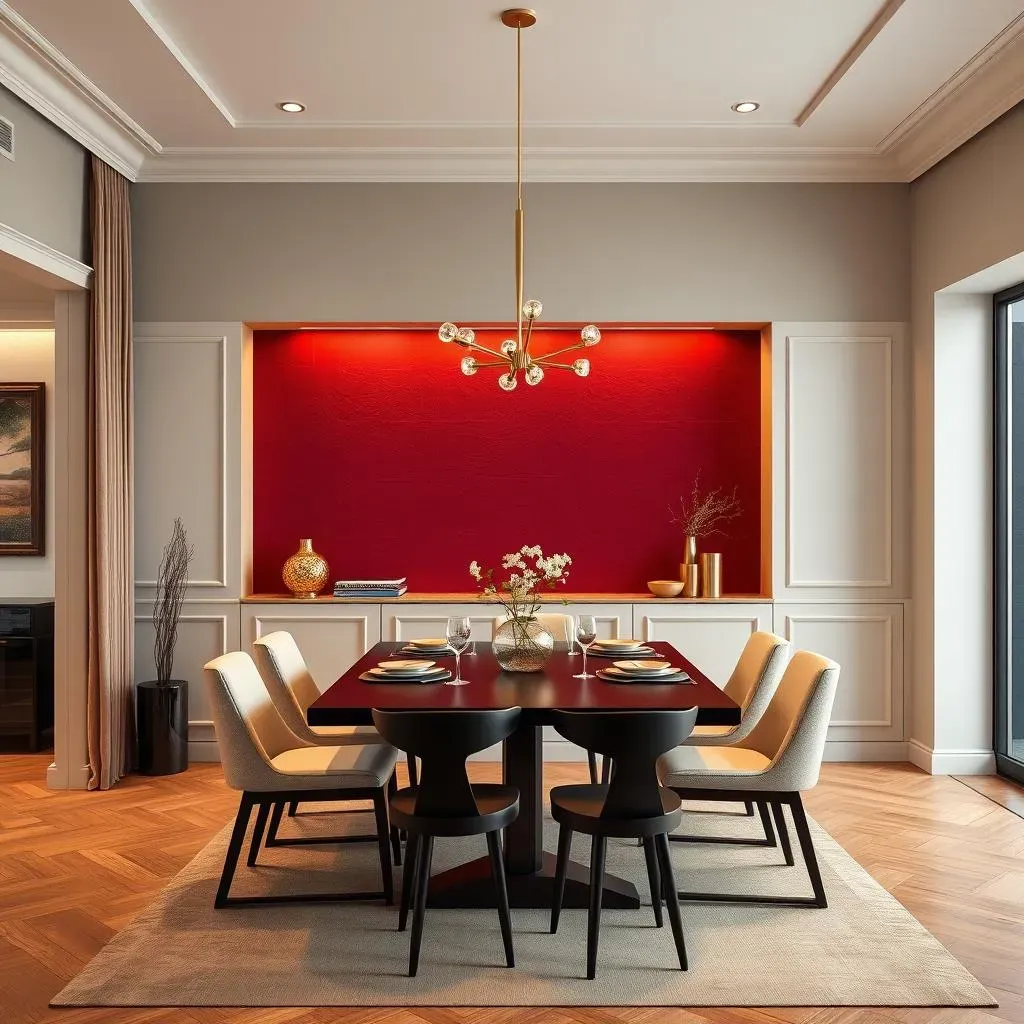
20 Accent Walls for Every Room: Inspiration for Your Home
Dining Room Drama
Let's start with the dining room. An accent wall here can really set the mood for meals and gatherings. Think deep, rich colors like burgundy or forest green to create a sense of warmth and intimacy. These colors work especially well in dining rooms with traditional decor. If you're looking for something a little more modern, try a geometric pattern or a textured wallpaper on your accent wall.
Consider the lighting in your dining room when choosing your accent color. A darker color might make the room feel smaller and more enclosed if it doesn't have a lot of natural light. In that case, you might want to opt for a lighter, brighter color or add some extra lighting fixtures to compensate.
Bedroom Bliss
Moving on to the bedroom, an accent wall can help create a relaxing and restful atmosphere. Soft, calming colors like lavender, light blue, or pale gray are great choices for a bedroom accent wall. These colors promote relaxation and can help you unwind after a long day. Place the accent wall behind your bed to create a focal point and add some visual interest to the room.
Think about the overall style of your bedroom when choosing your accent color. If you have a more minimalist bedroom, a subtle accent wall in a neutral color can add some depth without overwhelming the space. If you have a more eclectic bedroom, you can be a little more daring with your color choices. Just make sure the colors complement each other and create a cohesive look.
Room | Color Palette | Why it Works |
|---|---|---|
Dining Room | Burgundy, Forest Green, Gold Accents | Creates warmth and intimacy for gatherings. |
Bedroom | Lavender, Light Blue, Pale Gray | Promotes relaxation and restful sleep. |
Living Spaces that Pop
Now, let's get back to the heart of the home – the living room! We've already talked about some general color ideas, but let's dive into some specific examples. Consider a bold, geometric pattern on your accent wall to add a modern touch. Or, if you're a fan of texture, try a shiplap accent wall or a brick veneer. These options can add depth and dimension to your living room, making it feel more inviting and cozy.
Remember to consider the size of your living room when choosing your accent wall. A large, open living room can handle a bolder color or pattern, while a smaller living room might benefit from a more subtle approach. And don't forget to accessorize! Add some throw pillows, blankets, and artwork that complement your accent wall to tie the whole room together.
Living Room Accent Wall Color Ideas: Enhancing Your Space
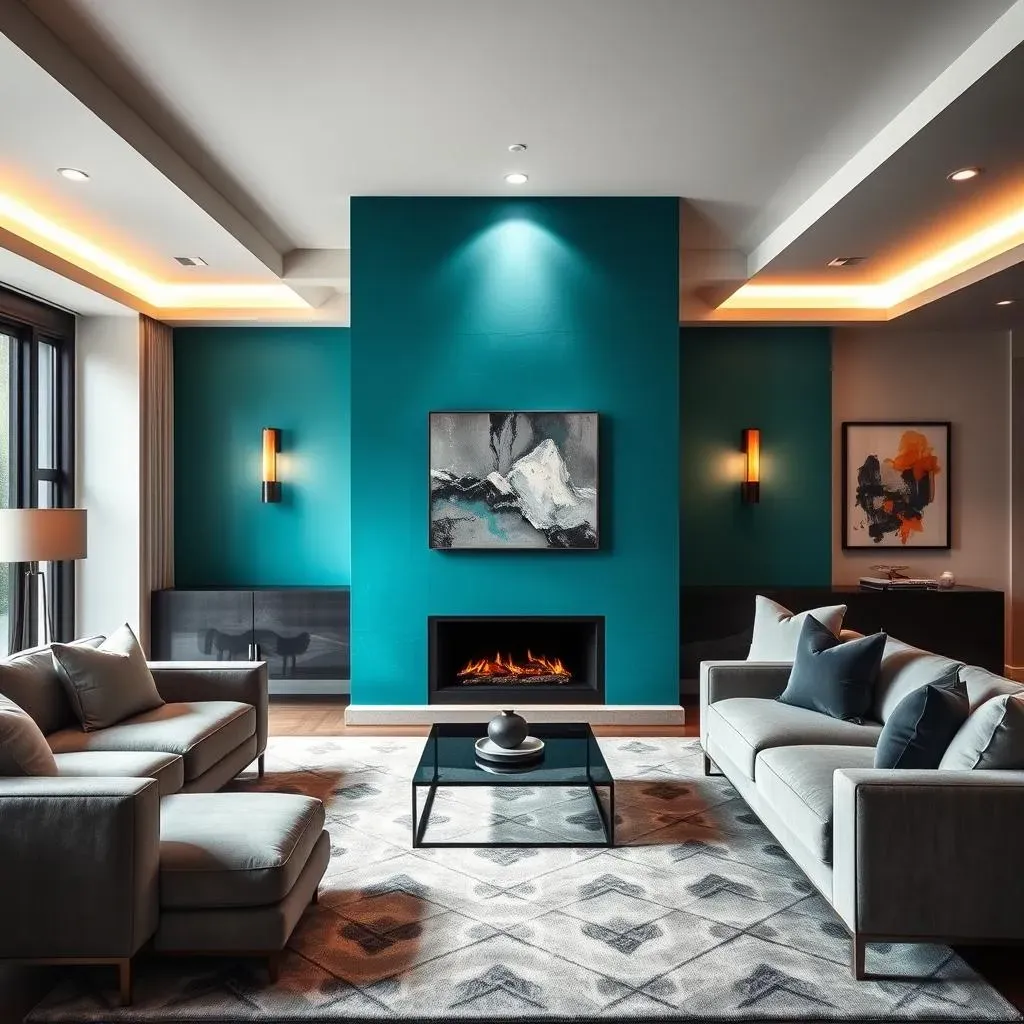
Living Room Accent Wall Color Ideas: Enhancing Your Space
Creating Depth and Dimension
let's talk about using living room accent wall color ideas to actually change the *feel* of your space. Think about it: color affects perception. A dark accent wall in a light room can make the space feel deeper, more intimate. Conversely, a light accent wall in a darker room can brighten things up and make it feel more open. It's all about playing with contrast and creating visual interest. Ever walked into a room and felt instantly drawn to a certain area? That's the power of a well-placed accent wall!
Consider the architecture of your living room. Do you have a fireplace? Built-in bookshelves? Highlight those features with a contrasting color. Or, if you have a blank wall that feels a little blah, an accent wall can instantly transform it into a focal point. Remember, the goal is to enhance the existing features of your living room and create a space that feels both stylish and inviting.
Color Psychology: Setting the Mood
Here's where it gets really interesting: color psychology. Different colors evoke different emotions, so choosing the right hue for your living room accent wall can actually impact your mood. Blues and greens are calming and relaxing, perfect for creating a serene and peaceful atmosphere. Yellows and oranges are energizing and uplifting, ideal for a living room where you entertain guests. Reds and purples are bold and dramatic, great for making a statement. It's like giving your living room a personality transplant!
Think about how you want to *feel* in your living room. Do you want it to be a cozy retreat where you can curl up with a book? Or a vibrant social hub where you can host parties? Choose a color that reflects that desired mood. And don't be afraid to experiment! Try painting swatches on your wall and living with them for a few days to see how they make you feel. It's a small investment that can make a big difference in the overall vibe of your living room.
Beyond Paint: Texture and Materials
Who says an accent wall has to be just paint? Let's think outside the box! Consider incorporating texture and different materials to add even more visual interest. Think shiplap, brick, stone veneer, or even textured wallpaper. These options can add depth and dimension to your living room accent wall, creating a truly unique and eye-catching feature. I've seen some amazing living rooms with reclaimed wood accent walls – they add so much character and warmth!
And if you're feeling really adventurous, why not try a mural or a large-scale piece of art? An accent wall is the perfect canvas for showcasing your personal style and creativity. Don't be afraid to get bold and experiment with different ideas. After all, it's your living room, and it should reflect your unique personality and taste. Remember, the possibilities are endless!
Material | Vibe | Best For |
|---|---|---|
Shiplap | Rustic, Coastal | Adding texture and warmth |
Brick Veneer | Industrial, Modern | Creating a bold statement |
Textured Wallpaper | Elegant, Sophisticated | Adding subtle visual interest |
Bedroom and Dining Room Accent Wall Ideas: Design Tips
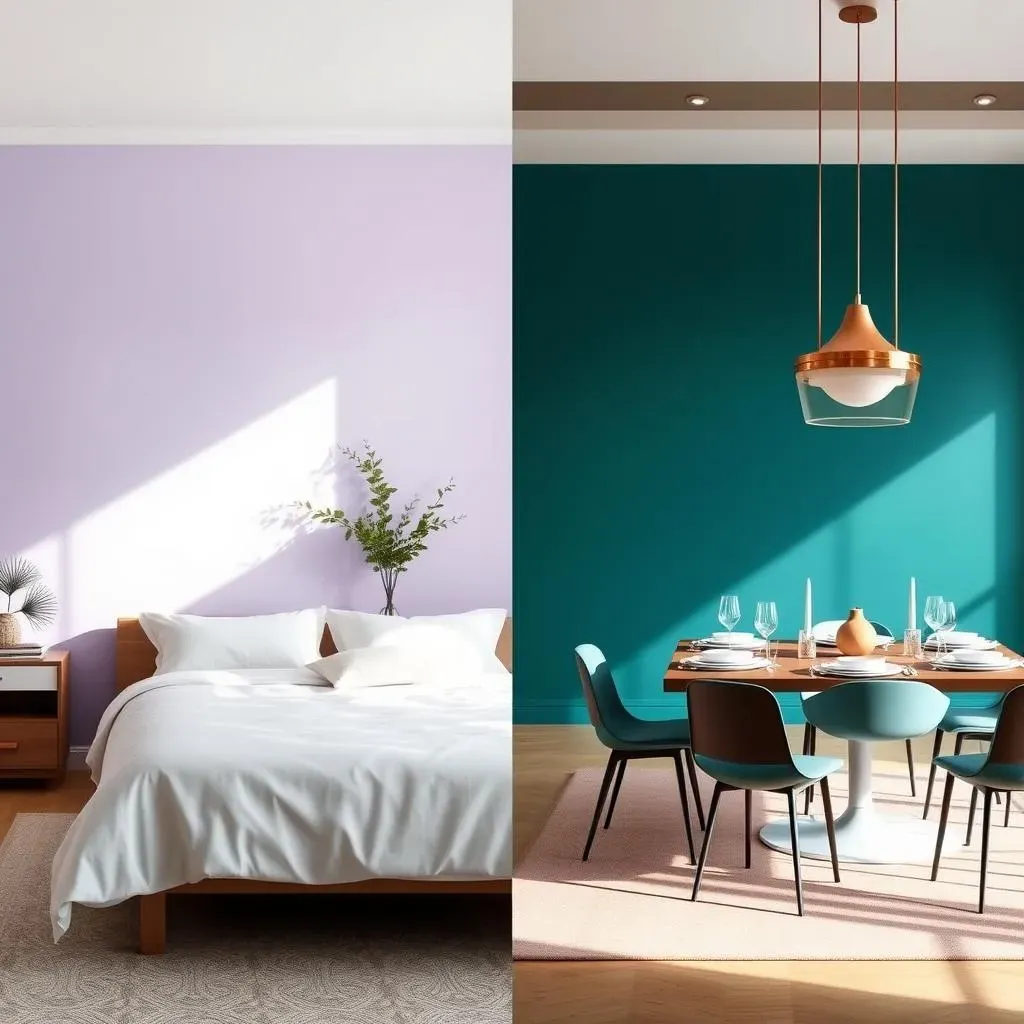
Bedroom and Dining Room Accent Wall Ideas: Design Tips
Alright, let's talk about some specific bedroom and dining room accent wall ideas, and I'll throw in some design tips that I've picked up along the way. When it comes to the bedroom, think about creating a sanctuary. You want a space that feels calm and relaxing, right? So,fter colors are your friend here. I'm talking about muted blues, gentle greens, or even a warm, earthy gray. These colors can help promote a sense of peace and tranquility, which is exactly what you want in a bedroom. I once painted a bedroom accent wall a light lavender, and it completely transformed the space. It felt so much more serene and inviting.
Now, for the dining room, you can be a little more adventurous. This is a space where you entertain guests, so you want it to feel lively and inviting. Rich, warm colors like deep reds, oranges, or even a bold teal can work really well here. These colors can stimulate appetite and conversation, which is exactly what you want during a dinner party. Just be careful not to go too overboard – you don't want to overwhelm your guests. A well-chosen accent wall can really set the mood for a memorable dining experience.
One design tip that I always share is to consider the lighting in your room. The color of your accent wall will look different depending on the type of light that's in the room. Natural light will bring out the true colors, while artificial light can alter them. So, before you commit to a color, make sure to test it out in different lighting conditions. Another tip is to think about the existing decor in your room. You want your accent wall to complement your furniture, artwork, and accessories, not clash with them. So, take some time to consider the overall style of your room before you start painting. Don't be afraid to experiment and have fun with it.
- Consider the lighting: Natural vs. Artificial
- Complement existing decor: Furniture, artwork, accessories
- Test colors: Before committing to a final choice
FAQ: Common Questions About Accent Walls in Living Rooms
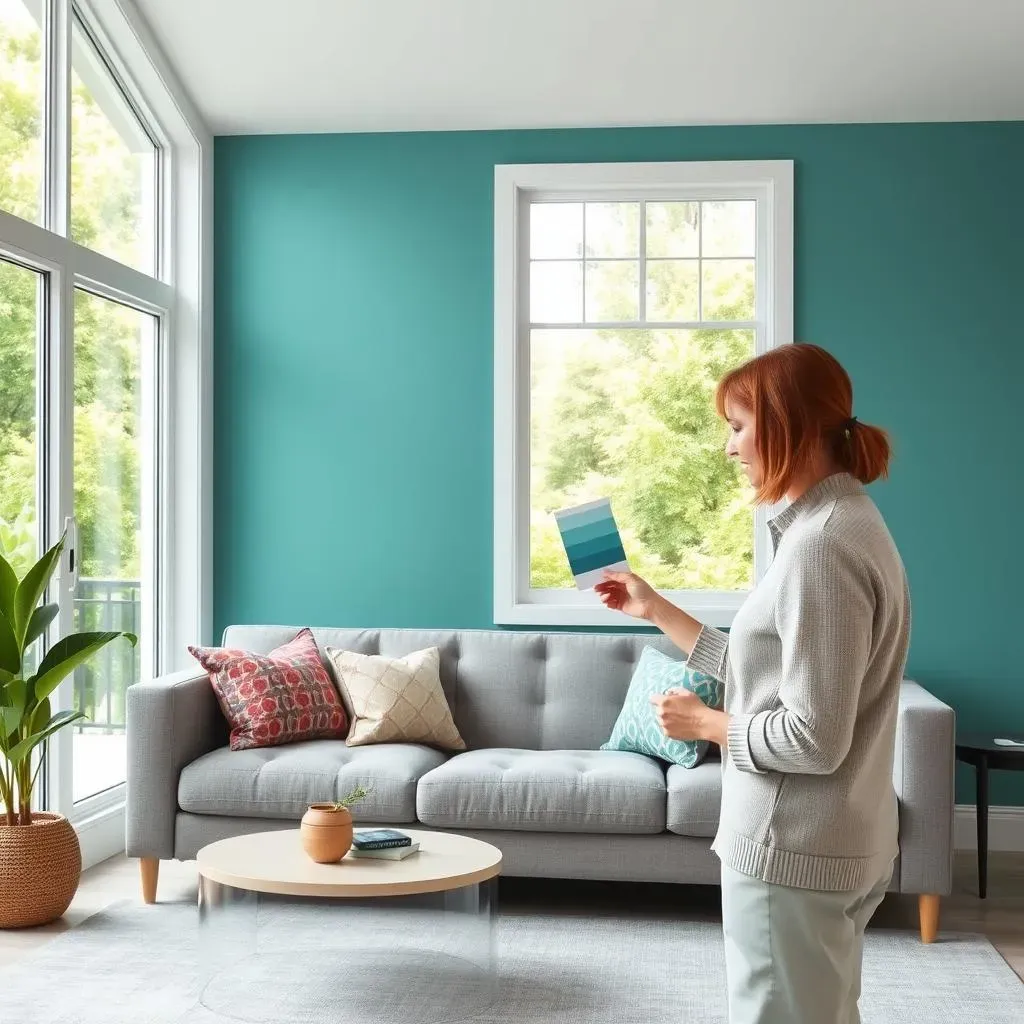
FAQ: Common Questions About Accent Walls in Living Rooms
How much paint do I need for an accent wall?
Ah, the age-old question! It really depends on the size of your wall, but generally, a gallon of paint should be more than enough for two coats. And trust me, you'll want to do two coats for the best coverage and color payoff. I always recommend getting a little extra, just in case you need to touch up any spots later on. It's better to have too much than not enough, right? Plus, you can always use the leftover paint for other small projects around the house. I once used leftover accent wall paint to spruce up an old bookshelf, and it looked amazing!
Don't forget to factor in the type of paint you're using. Some paints offer better coverage than others, so you might be able to get away with just one coat. But in my experience, two coats always gives the most professional-looking finish. And while you're at it, make sure to invest in some good-quality brushes and rollers. They'll make the painting process so much easier and give you a smoother, more even finish. Trust me, your accent wall will thank you!
Will an accent wall make my living room look smaller?
This is a common concern, and it's a valid one. The truth is, an accent wall *can* make a living room feel smaller, but it doesn't have to. The key is to choose the right color and placement. Dark colors tend to recede, so if you paint a small living room a dark color, it might feel even smaller. On the other hand, a light-colored accent wall can actually make a small living room feel larger and more open. It's all about creating the illusion of space. I've seen some amazing small living rooms with light, airy accent walls that feel so much bigger than they actually are.
Placement is also important. If you have a long, narrow living room, painting the far wall an accent color can help to shorten the room and make it feel more balanced. And if you have a low ceiling, painting the ceiling an accent color can help to make the room feel taller. It's all about playing with proportions and creating a sense of harmony. So, don't be afraid to experiment with different colors and placements to see what works best for your living room. Remember, the goal is to create a space that feels both stylish and comfortable.
Room Size | Accent Wall Color | Effect |
|---|---|---|
Small Living Room | Light Colors (e.g., Pale Gray, Light Blue) | Creates a more open and airy feel. |
Large Living Room | Dark Colors (e.g., Deep Navy, Burgundy) | Adds depth and intimacy. |
What wall should I choose for an accent wall?
Choosing the right wall is crucial! Usually, it's the wall that naturally draws your eye when you enter the room. Think about the wall with the most architectural interest, like a fireplace, a large window, or built-in shelves. Or, if you don't have any of those features, choose the largest, most prominent wall in the room. I always tell people to stand in the doorway and see which wall their eyes are naturally drawn to. That's usually the best choice for an accent wall. I once helped a friend choose an accent wall in her living room, and she was torn between two walls. But when she stood in the doorway, it was clear that one wall was the obvious choice. It had a large window that framed a beautiful view, and it instantly became the focal point of the room.
Avoid choosing a wall that's cluttered with doors or windows, as that can make the accent wall feel disjointed and busy. You want a clean, open canvas that will really showcase your chosen color or texture. And don't forget to consider the furniture in your room. You want to choose a wall that will complement your furniture and create a cohesive look. So, take some time to assess your living room and choose the wall that will make the biggest impact. Remember, the goal is to create a focal point that will enhance the overall style of your space.
Conclusion
So, are you ready to transform your space? Exploring living room accent wall color ideas is a fantastic way to inject personality and style into your home without breaking the bank. From bold statements to subtle enhancements, the possibilities are endless. Don't be afraid to experiment, draw inspiration from your existing decor, and most importantly, choose colors that resonate with you. With a little creativity and a fresh coat of paint, you can create a living space that truly reflects your unique taste and makes you feel right at home.
